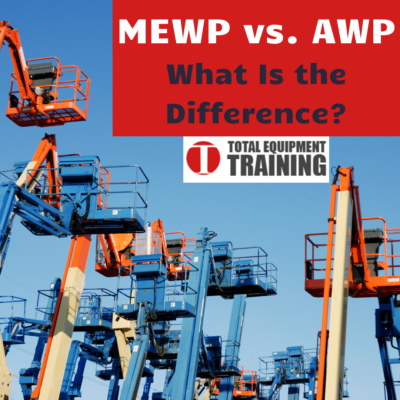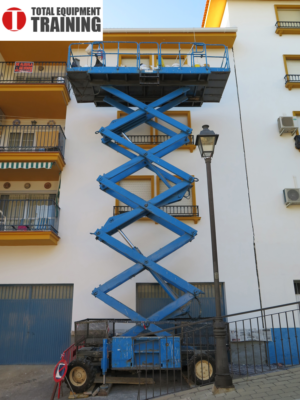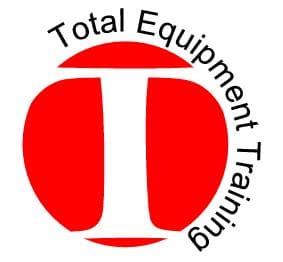
Demand for work at heights requires safe and repeated access to elevated areas. Erecting structures to reach great heights may create obstruction, incur costs, and take up space. One solution to this challenge was found in mobile elevating work platforms (MEWP).
Until recently, mobile elevated work platforms were known as AWP: Aerial Work Platforms until ANSI (American National Standards Institute) renamed and re-classified the types of elevating platforms used in construction and industry in 2020. The work done by MEWP or AWP however, does not change, in that they still provide powered access to elevated work areas.
Whether you need AWP operator training or MEWP operator certification, trust the experienced Total Equipment Training staff to assist.
The Main Types of MEWP
Classifications of MEWP can be done in two ways:
- Classification by Group
- Classification by Type
- Classification by Group
A MEWP’s group is established by the location of its platform in regard with the tipping line of its base. The tipping line is a boundary that when the elevating platform crosses, begins to introduce a tipping hazard. Stabilizers, such as outriggers and counterweights create and extend a safe work radius, and manufacturers include extension limits for their MEWP.
-
-
- Group A – MEWP in this group exclusively move their platform vertically (e.g., scissor lifts)
- Group B – MEWP move their platforms beyond their tipping line. Any other MEWP not in Group A, i.e. boom lifts.
-
- Classification by Type
MEWP types are determined by how the machine is able to move around. There are 3 classes:
-
-
- Type 1 – This type of MEWP can only move when the elevating platform is in the stowed position.
- Type 2 – These MEWP can move while their platforms are elevated, but the control to do so is done from the chassis/base.
- Type 3 – Similar to type 2 MEWP, but with movement controls located on the elevating platform itself.
-
OSHA MEWP Training Requirements

In a nutshell, the document highlights the different training required by the MEWP occupant, operator, and supervisor.
- Supervisor – They must receive training on proper MEWP selection, hazard identification and risk management, requirements for users and operators, and following the MEWP manufacturer operator’s manual.
- Occupant – The occupant is any worker being raised or lowered on the platform. They do not require any formal training, but do need to be familiar with the MEWP’s operation, hazards involved, general rules and signs, as well as their work on/with the MEWP. At least one occupant must receive emergency safety training on MEWP operation, in the case of an emergency
- Operator – As the MEWP’s controllers, they must be familiar with the controls and utility of any MEWP on site, best-use and limitations as indicated by the manufacturer, and inspection procedures.
Despite having received training on AWP prior to the changes made by ANSI, operators must undergo more training in line with the updated MEWP standards.
With a greater focus on health and safety, OSHA maintains many of its safety protocols when it comes to its regulations on MEWP. The classifications and definitions of MEWP may have changed, but the machinery in use is still the same.
Call to Schedule MEWP Onsite Training
How To Get MEWP Operator Training
If you or your team need to start or update their training on MEWP operation and familiarization, there is nowhere better to look than Total Equipment Training. TET is a nationally recognized, OSHA-compliant training and safety organization with years of experience and a healthy network of skilled professionals from all levels of the heavy and construction industry.
Thanks to TET’s attention to monitor changes in the industry, they are ready to provide up-to-date training on MEWP, with their MEWP/AWP Training program. Total Equipment Training also provides MEWP inspection services for any and all classifications, regardless of your location across the country. Reach out to TET today and begin your journey to a safer and more efficient workplace.

